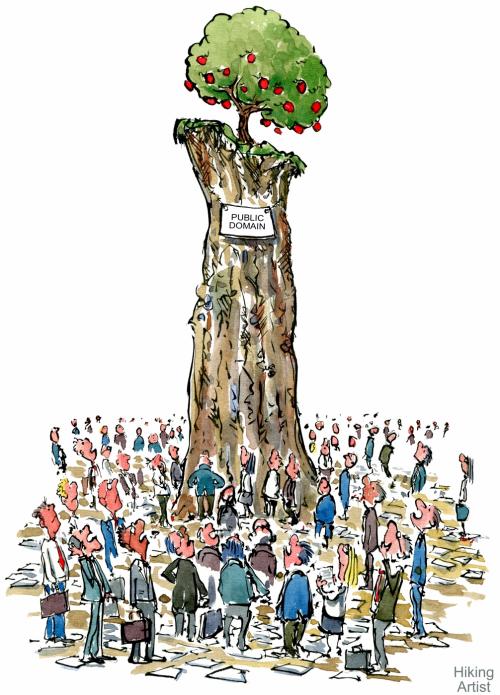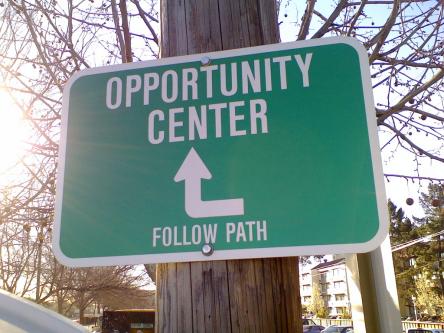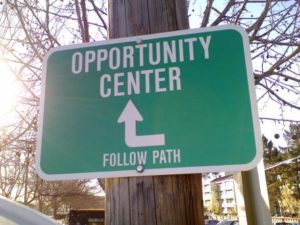
We didn’t have time for all the videos he wanted to show last time, so Chuck Metalitz is doing it again: A marathon (well, four hours or so) of animations, lectures, documentaries, and other formats, from America, Canada, Australia, Britain, and maybe a few others, including people we do not necessarily identify as Georgists. Most of these are about three to fifteen minutes, with longer ones represented by extracts. You’re welcome to stop by any time during the show; do not feel obligated to attend the entire session.
Just about all of these videos are intended for an audience not familiar with Henry George or, in many cases, not even conscious of political economy. That probably describes some of your friends or professional colleagues, so bring them along.
We will have some sort of light refreshments. The event is free, with donations welcome. Also welcome are suggestions for relevant videos which we might not be aware of.
Between 1948 and 1973, Americans’ real wages rose almost as fast as their productivity. After 1973, productivity grew 147% but wages rose only 19%. This raises two questions:
(1) If workers getting less, who is getting more?
(2) Is there a way to restore the balance?
To solve the problem of poverty, and the many other problems that follow from it, ordinary workers need higher wages. George Menninger describes how to raise wages without interfering in the free market and without taking anyone’s earnings.
George Menninger is an instructor at the Henry George School of Chicago, and attendees at this free program will have the opportunity to sign up for his Progress & Poverty course.
You can sign up for this free event thru Eventbrite, or RSVP directly by email.
If you want to understand the underlying causes of persistent poverty in America, you’ll benefit from this course. This is the “modern” version, based on Bob Drake’s “Abridged for Modern Readers” edit of Henry George’s original book. As always, the first class session is entirely free, but if you decide to enroll in the course we request a $25 fee to help cover costs. Veteran HGS instructor Bob Jene will help you understand not only the causes of economic stagnation, but a workable remedy.
This course will meet for six consecutive Friday’s beginning January 6. Our space at Overflow Coffee Bar is directly served by CTA routes 62 and 29, and a reasonable walk from Red, Green, and Orange Line Roosevelt station, as well as Metra Electric’s Museum Campus and 18th Street stops.
Between 1948 and 1973, Americans’ real wages rose almost as fast as their productivity. After 1973, productivity grew 147% but wages rose only 19%. This raises two questions:
(1) If workers getting less, who is getting more?
(2) Is there a way to restore the balance?
To solve the problem of poverty, and the many other problems that follow from it, ordinary workers need higher wages. George Menninger describes how to raise wages without interfering in the free market and without taking anyone’s earnings.
George Menninger is an instructor at the Henry George School of Chicago, and attendees at this free program will have the opportunity to sign up for his Progress & Poverty course.
No reservation is required, but you can let us know by email that you’re coming.
Between 1948 and 1973, Americans’ real wages rose almost as fast as their productivity. After 1973, productivity grew 147% but wages rose only 19%. This raises two questions:
(1) If workers getting less, who is getting more?
(2) Is there a way to restore the balance?
To solve the problem of poverty, and the many other problems that follow from it, ordinary workers need higher wages. George Menninger describes how to raise wages without interfering in the free market and without taking anyone’s earnings.
George Menninger is an instructor at the Henry George School of Chicago, and attendees at this free program will have the opportunity to sign up for his Progress & Poverty course.
No reservation is required, but you can let us know by email that you’re coming.

Yes, it is possible to end poverty in America — or any independent nation — by recognizing a clear and logical distinction between private property and community property. Not just the poor, but everyone would have the opportunity to earn a decent living and enjoy better quality of life. Henry George, a prominent American philosopher and economist of the late 19th century, was the most prominent advocate of this reform. His book on the subject, Progress & Poverty, was probably the best-selling nonfiction work of his time, sparked a movement which brought prosperity to several American communities and foreign countries.
Introducing Progress & Poverty is a program by the Henry George School of Chicago, outlining the principles George advocated, how and why they work, and their potential for solving today’s problems in this city and elsewhere. This program will next be presented on Tuesday, October 10, 6PM to 8PM in the Chicago loop. Attendance is without charge or obligation. An extended course is also available for those interested.
We regret that due to management practices at the building, we must require pre-registration by email or phone (312 450-2906). If you are interested in the topic but this date and location don’t fit your schedule, please sign up for our announcement list. Also note that the program will be repeated in Edgewater on Sunday afternoon, October 29.

Yes, it is possible to end poverty in America — or any independent nation — by recognizing a clear and logical distinction between private property and community property. Not just the poor, but everyone would have the opportunity to earn a decent living and enjoy better quality of life. Henry George, a prominent American philosopher and economist of the late 19th century, was the most prominent advocate of this reform. His book on the subject, Progress & Poverty, was probably the best-selling nonfiction work of his time, sparked a movement which brought prosperity to several American communities and foreign countries.
Introducing Progress & Poverty is a program by the Henry George School of Chicago, outlining the principles George advocated, how and why they work, and their potential for solving today’s problems in this city and elsewhere. We’ll present this program on Sunday afternoon, October 29, 3PM to 5PM in the Edgewater neighborhood on Chicago’s north side. Attendance is without charge or obligation. An extended course is also available for those interested.
Pre-registration by email is encouraged, but not required if space is available. If you are interested in the topic but this date and location don’t fit your schedule, please sign up for our announcement list. Also note that the same program will be presented October 10 at a loop location.

Yes, it is possible to end poverty in America — or any independent nation — by recognizing a clear and logical distinction between private property and community property. Not just the poor, but everyone would have the opportunity to earn a decent living and enjoy better quality of life. Henry George, a prominent American philosopher and economist of the late 19th century, was the most prominent advocate of this reform. His book on the subject, Progress & Poverty, was probably the best-selling nonfiction work of his time, sparked a movement which brought prosperity to several American communities and foreign countries.
Introducing Progress & Poverty is a program by the Henry George School of Chicago, outlining the principles George advocated, how and why they work, and their potential for solving today’s problems in this city and elsewhere. We’ll present this program on Thursday afternoon, January 4, at 1PM at 300 Dodge in Evanston (CTA routes 93 and 97 stop nearby). Attendance is without charge or obligation. An extended course is also available for those interested, with sessions starting January 16 at the Evanston Public Library and January 18 in the loop.
Pre-registration by email or thru Eventbrite is encouraged, but not required if space is available. If you are interested in the topic but this date and location don’t fit your schedule, please sign up for our announcement list. Also note that a slightly expanded version of the same program will be presented January 11 at a loop location.

Yes, it is possible to end poverty in America — or any independent nation — by recognizing a clear and logical distinction between private property and community property. Not just the poor, but everyone would have the opportunity to earn a decent living and enjoy better quality of life. Henry George, a prominent American philosopher and economist of the late 19th century, was the most prominent advocate of this reform. His book on the subject, Progress & Poverty, was probably the best-selling nonfiction work of his time, sparked a movement which brought prosperity to several American communities and foreign countries.
Introducing Progress & Poverty is a program by the Henry George School of Chicago, outlining the principles George advocated, how and why they work, and their potential for solving today’s problems in this city and elsewhere. We’ll present this program on Thursday, January 11, at 6:15PM. Attendance is without charge or obligation.
An extended course is also available for those interested, with sessions starting January 16 at the Evanston Public Library and January 18 in the Loop.
Due to building access restrictions you MUST pre-register using the Eventbrite link, or by email or by phone. If you are interested in the topic but this date and location don’t fit your schedule, please sign up for our announcement list. Also note that a slightly expanded version of the same program will be presented January 11 at a loop location.

Yes, it is possible to end poverty in America — or any independent nation — by recognizing a clear and logical distinction between private property and community property. Not just the poor, but everyone would have the opportunity to earn a decent living and enjoy better quality of life. Henry George, a prominent American philosopher and economist of the late 19th century, was the most famous advocate of this reform. His book on the subject, Progress & Poverty, was probably the best-selling nonfiction work of his time, sparked a movement which brought prosperity to several American communities and foreign countries.
Introducing Progress & Poverty is a program by the Henry George School of Chicago, outlining the principles George advocated, how and why they work, and their potential for solving today’s problems in this city and elsewhere. We’ll present this program on Saturday, March 10 and again on Thursday, March 15. Attendance is without charge or obligation.
For those wanting in-depth understanding of the logic and implications of Progress & Poverty, an extended course will be offered starting later in March.
PREREGISTRATION MANDATORY. This program is free, but due to building policies you must pre-register by email or by phoning us at 312 450-2906.
If you are interested in the topic but this date and location don’t fit your schedule, please sign up for our announcement list.
